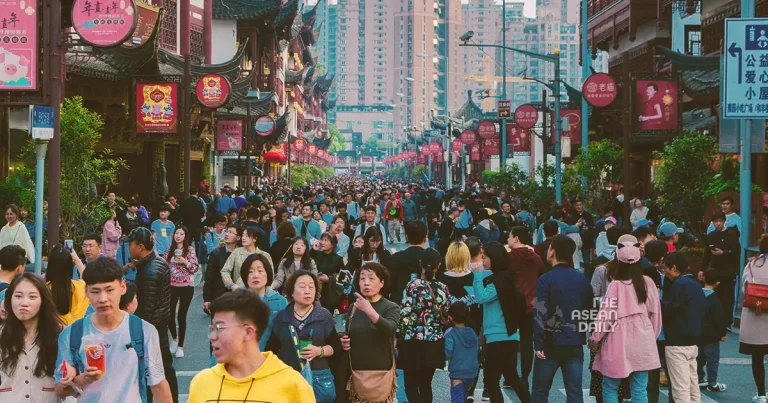29-9-2023 (KUALA LUMPUR) With a remarkable 40% surge in Chinese tourists arriving in conjunction with the Golden Week holiday, the call for implementing visa-free travel for Chinese visitors to Malaysia has grown stronger within the tourism industry. This move is seen as a pivotal strategy to bolster Malaysia’s tourism sector.
The Golden Week holiday aligns with the Mid-Autumn Festival and spans eight days until October 6, during which a significant number of Chinese nationals traditionally travel overseas.
Paul Paw, President of the Malaysian Chinese Tourism Association, highlighted that China’s Golden Week holiday has emerged as a catalyst for travel promotion, tourism enhancement, and consumer spending stimulation. He emphasized the need to act swiftly and provide visa-free travel to facilitate this growth in tourism. Paw stated, “While we may miss out on this Golden Week, let’s move on and do the necessary so that we can still welcome more tourists during the year-end traveling season. The sooner we can provide visa-free convenience for them, the better.”
Paw’s comments were in response to an announcement by Malaysia’s Tourism, Arts, and Culture Minister, Datuk Seri Tiong King Sing, regarding an impending policy related to visa-free travel for Chinese tourists. Tiong mentioned that Prime Minister Datuk Seri Anwar Ibrahim had directed the Home Ministry to draft a report, with a decision expected within a week or two.
According to a statement in Sin Chew Daily, Anwar discussed this proposal during his recent visit to the China-Asean Expo in Nanning, China, suggesting that both countries offer visa-free arrivals for their tourists. Tiong also mentioned the possibility of extending similar traveling conveniences to tourists from India.
Paw, while anticipating an influx of Chinese tourists, concurred that bilateral travel convenience would be the best approach. He expressed optimism that Beijing would reciprocate with the same courtesy once Malaysia took the initial step. Chinese tourist arrivals reportedly increased by 40% during the Golden Week holiday, underscoring the potential benefits of visa-free travel.
Paw also urged the government to consider extending visa-free arrivals to Indian travelers, given that both China and India are among the most populous countries globally. He suggested that a visa-free 30-day social visit stay should suffice, emphasizing the importance of improving government policies, immigration services, and tourism products to create a positive impression among visitors.
Nigel Wong, President of the Malaysian Association of Tour and Travel Agents (MATTA), echoed the sentiment that visa-free facilities have historically led to increased tourist arrivals in specific destinations. He emphasized that a visa-free policy with China and India would make Malaysia more accessible and appealing to these markets.
Wong stressed that Malaysia’s visitor-friendly reputation should be leveraged by taking immediate steps to attract these tourists. He said, “A visa-free policy will have an almost immediate effect towards this end. We should not be pre-empting visitors’ intentions prior to entry, which will inevitably turn genuine tourists away and create a negative impression of Malaysia. If there are concerns, visa-free policies can be implemented on a periodical basis for a pre-determined duration.”
Earlier in the month, Thailand, a popular destination for Chinese tourists, announced the waiver of visa requirements for Chinese travelers for five months, starting on September 25. This decision resulted in a surge in searches for flight tickets to Thailand and its hotels on various online travel platforms.




